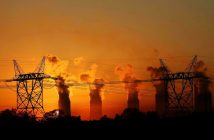- Woodmac has release a very interesting report of how the world will look post Covid-19.
- The Covid-19 pandemic has hit the world economy harder than any event since World War 2.
- As governments around the world have shuttered businesses and restricted freedom of movement, demand for energy has plunged.
- Oil consumption in Q2 2020 is down more than 12%.
The coronavirus pandemic has hit the world economy harder than any event since World War 2, and is likely to have a lasting impact on energy demand. As governments around the world have shuttered businesses and restricted freedom of movement for billions of people, consumption of oil, gas and power has fallen.
Demand for oil, in particular, has plummeted as a result of the reductions in road transport and air travel. It will not quickly recover quickly to the path it was on before the pandemic hit.
The ultimate impact of Covid-19 will depend on questions that do not yet have definitive answers. How quickly can an effective vaccine can be developed? Will politicians respond to the pressure to create jobs by supporting renewable energy and electric vehicles? Will consumers remain nervous about taking flights and using public transport? It will be many months, at least, before we know for sure.
However, some clear trends are already visible. Governments are using their powers more freely to control businesses and the public; international travel has been restricted; and there has been a boom in the use of technologies such as teleconferencing to adapt to life under lockdown.
Businesses and politicians are debating the merits of complex international supply chains, and questioning whether they have increased efficiency at too high a cost in terms of greater vulnerability to disruption.
As a framework for thinking about the long-term effects of the pandemic, we looked at three scenarios based on these trends, and showed some illustrative projections for oil, gas and coal.
Three scenarios for long-term energy demand
The ‘Full recovery’ scenario models a strong rebound in the world economy, with the level of global GDP rapidly returning to where it would have been without the effect of the pandemic. That scenario converges with Wood Mackenzie’s base case view from the end of last year: oil demand rises out to the mid-2030s, and then starts to decline in the second half of the decade.
In the other scenarios, projecting a greater impact from the coronavirus and/or from government policies, the outlook for oil is weaker. The ‘Go it alone’ scenario reflects a retreat from globalisation, with a deeper downturn and slower trend growth thereafter. In that world, oil demand in 2030 is projected to be lower than it would have been in 2023 had the pandemic not hit.
The ‘Greener growth’ scenario, based on the ‘Accelerated energy transition’ that Wood Mackenzie set out last year, also points to weaker oil consumption. In this version, programmes such as the European Green Deal, and the Green New Deal advocated by many Democrats in the US slow the rise in oil use through tighter fuel efficiency standards and the electrification of transport. Oil demand plateaus in the 2020s, before starting to fall steeply in the 2030s.
Reality is likely to mix and match different elements from these scenarios. Some regions will push hard on the accelerator for the energy transition, while others focus more on developing domestic manufacturing industries and protecting existing energy producers. But most of the likely changes work in the same direction: towards weaker oil demand growth.
Some things will still be the same after the pandemic. People will still want to see friends and family and go abroad on holiday. The economic logic of comparative advantage will still reward global supply chains. So there will be powerful forces driving the world back towards the structures and habits that existed before Covid-19.
But history shows that periods of crisis are often when structural changes accelerate. Oil demand growth was already slowing, and the pandemic seems likely to push it into a new era.
Putting the brakes on oil demand
Oil consumption in Q2 2020 is down more than 12% on the same period of 2019. Some of that demand is already starting to come back, and it looks as though April will turn out to have been the worst month in terms of the global oversupply of oil. But the evidence suggests we should not expect a rapid return to conditions before the pandemic.
The pandemic may not mean that the world reaches “peak demand” for oil any sooner, but the rate of growth out to 2040 could be much slower than in recent decades. A combination of weaker economic growth, changes in consumer behaviour, and government policies could put a brake on oil consumption for many years.
Oil companies planning for the post-pandemic future can expect a robust recovery in the short term as activity resumes, but will have to be prepared for a flatter growth outlook beyond that.
Critical strategic challenge ahead
For energy companies, the emerging long-term outlook creates a critical strategic challenge. They are highly risk-averse right now, and their finances are under intense pressure. Many are cutting capital spending. But they will need to prepare for the opportunities and threats in the new world that lies ahead once the immediate crisis is past.
Link to the full report HERE
Author: Bryan Groenendaal
Source: Woodmac











